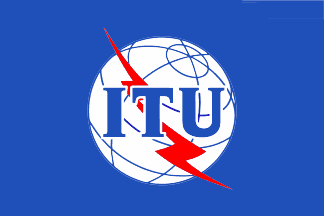Nokia has signed an agreement with the European Investment Bank (EIB) for a loan of 500 million Euros (572 million US dollars) to accelerate the development of cutting edge 5G technology. This loan, supported by the European Fund for Strategic Investments (EFSI), will present opportunities for the Finnish telecom equipment manufacturer to invest in the research, development and innovation of the soon-to-be telecommunication standard technology, thereby expanding the market and displaying the potential of 5G in Europe. “We have to understand that China and the US have moved fast with the 5G. It is very important to have European companies going in for this competition,” commented the EIB vice president Alexander Stubb in the online Finnish newspaper Helsingin Sanomat. While the specific uses for the funds have not yet been identified, it is clear that Nokia’s end-to-end network will greatly benefit from this loan by ensuring the connectivity and reliability…
Cisco Vice President Rob Salvagano recently announced plans for Cisco to acquire the cloud-base mobile platform provider, July Systems. July Systems specializes in location services for global enterprises. They collect and generate data-based insights by tracking customer movements within locations such as stores, malls, airports, stadiums and hotels, similar to the methodology used for compiling online browsing information. Headquartered in California, US and with a Global Development Center in Bangalore, India, July Systems has already collaborated with Cisco for several years on their Connected Mobile Experience (CMX). “We plan to add July Systems’ platform and business context capabilities to provide a unified solution on which our partners and customers can build and deliver a range of indoor location services for industries as diverse as healthcare, government, logistics, manufacturing, sports arenas, hotels, education and retail,” explains Salvagano. July Systems was founded in 2001 by Rajesh T.S. Reddy with funding of USD…
With JPY 518.2 billion of value at the end of March 2018, the production of telecommunication material and devices wend down 24% year-on-year. The reason can be found in the constant relocation of factories, but also in the decrease of investments for this industry. The CIAJ (Communication and Information Network Association of Japan) stated that both business and infrastructure, whether it is landline or wireless, related equipments showed signs of lack of interest by investors. One figure represents this fall down: the production and trade of mobile terminal equipment dropped 39% in those 12 months with JPY 171 billion.
Two of the main key players in South African mobile operators, MTN and Vodacom, have shown interest in investing in the Ethiopian company Ethio Telecom. Both companies have invested in many countries on the continent. Ethiopia was not one of them as the government wanted to keep this sector under its control. But their policy is changing and they have decided to consider opening Ethio Telecom’s capital to investors. According to MTN, “Ethiopia presents many exciting telecommunication opportunities and we look forward to further discussions with that nation’s authorities on potential partnerships and opportunities.” and Vodacam stated that it “has said on many occasions that Ethiopia is an attractive market so it follows that there would be interest. Naturally this is dependent on what might become available and if it fits within our investment parameters.” Abiy Ahmed, Ethiopian new Prime Minister, came to power with promises of reforms. This policy…
The secretary-general of the International Telecommunication Union (ITU), Zhao Houlin, explained at a press conference in Geneva, Switzerland, that infrastructure, investment, innovation and inclusion, or the “4 I’s”. Those pillars for information and communication technology (ICT) will be an obligation to reach the UN Sustainable Development Goals (SDG), especially for the next ten years. Infrastructure are essential to hold any economy based on communication and high tech. The future of digital economy in sustainable cities, will largely be based on the capacity to construct strong equipments for those infrastructures, not only to connect people but also objects. Strong investments are fundamental for the development of ICT. In order to see progress on SDG, innovation in the domain of finance will be needed and a mix between public and private investors is one of the solutions. Opportunity is only possible with innovation, thus small companies that base their growth and survival…








